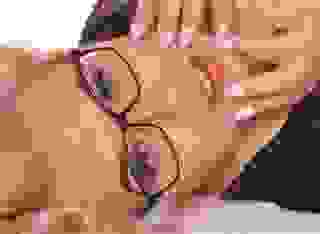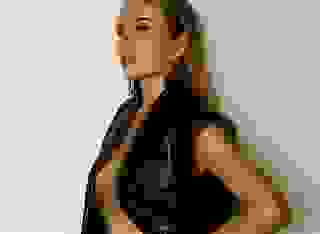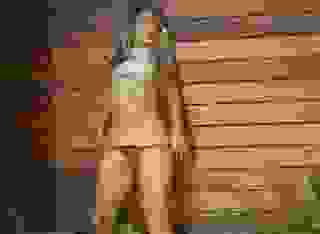Note: You can change font size, font face, and turn on dark mode by clicking the "A" icon tab in the Story Info Box.
You can temporarily switch back to a Classic Literotica® experience during our ongoing public Beta testing. Please consider leaving feedback on issues you experience or suggest improvements.
Click hereNanyehi's spirit would be with her ancestors now anyway, and talking to her grave would do no good. Before, he had wanted her by his side as he pursued his course in life. Now, he would have to make the journey alone.
It took five days for Bird to reach the Red River. Each morning and each evening, he would see the riders following him. Each evening, he placed his ten-gauge double-barreled shotgun in his bedroll, just in case those riders decided to do more during the night than observe his progress. In Gritts, he'd loaded the shotgun with bird shot to hunt sharp-tailed grouse and prairie chickens. Now, the shotgun was loaded with buckshot as his insurance against more of Nanyehi's mother's treachery. He didn't trust Nanyehi's mother not to ask her sons to kill him if the opportunity presented itself.
After Bird crossed the river he looked back frequently to see if he'd been followed, but saw no one. Nanyehi's mother would be satisfied now. She'd driven him from her sight. He smiled to himself. He was gone from her sight, but not from her mind. Bird knew she would forever blame him for Nanyehi's death, though in truth, she herself had caused it.
At least he was free from her venomous talk and piercing stares. He could live his life in peace. If the stories told by the elders were true, Nanyehi's mother would live the tortured life of one who one who hates more than loves and is therefore given little love in return. She would die hating Bird, and because of that hatred, would not be able to cross the bridge to the Happy Land. She would spend eternity in the stinking river of dead fish and rotting animals, able to see Nanyehi in the Happy Land, but unable to join her.
Bird took some comfort in that thought -- that the woman who had denied him of a happy life with Nanyehi would lose the happy life after death as a result.
After three more days of following the same road, Bird saw buildings in the distance. As the mare plodded along, carrying him closer to the town, he wondered if he should just turn off the wagon track and keep going. It would be easier than meeting people he didn't know who might not like having an Indian in their town. He'd heard that whites were that way -- they didn't like anyone who wasn't white.
Bird thought of the stories his mother had told him about his grandfather, and knew there were at least some whites who liked Indians. His grandfather was a Scottish trapper named Wallace McGinness, and had taken a Cherokee woman as his wife. She bore Wallace a daughter, Bird's mother, before he died in the cholera epidemic in the early 1800's. She then married her sister's husband and lived with them as second wife.
Bird barely remembered his Cherokee grandmother. He could recall only fleeting glimpses of her as she sat on her porch with him. What he remembered most was the obvious love his grandmother had for her Scottish husband, and he for her. If there could be one white man like Wallace McGinness, could there not be more whites to would at least accept an Indian as a person?
Bird was so engrossed in his thoughts the mare made the decision for him. He was shaken from those thoughts when the mare broke into a trot. He heard her deep neigh, and then the answering neighs from six large horses in the corral behind the first building at the entrance to the town. He was about to turn the mare off the road when he saw a man step out of the building and look for the sound.
Bird had been taught from birth that a man with nothing to hide did not avoid contact with others. Turning away from the town after he'd been seen would probably make the man think he was running from something. Bird had no desire to be chased because he looked suspicious, so he slacked his tension on the reins and let the mare take them to the building. The man from the building waited until the mare came to a stop and rubbed noses with the horses in the corral.
Bird smiled, touched the brim of his hat, and said "Afternoon;"
The man didn't smile, but nodded.
"What's the name of this town?" asked Bird.
The man had been studying Bird. He frowned and said, "You're a Indian, ain't you?"
"Yes, Cherokee."
"You fight in the war?"
"No."
"Why not?"
"My village elders said it would make the government mad at the Choctaw and they'd force us to give up more than we already have. They thought that way because the government took our land in Tennessee and forced us to go to Indian Territory. They didn't believe the Confederates would be any better if they won, so they stayed out of it."
"Choctaw? I thought you said you was a Cherokee."
Bird smiled.
"I guess I'm both. My mother was Cherokee and my father was Choctaw. I'm part white too. My grandfather was a Scottish trapper."
"A half-breed then. Don't know if that's good or bad. If you was a Apache I'd know, but I ain't been here long enough to know any Choctaw half-breeds. You're a long way from Choctaw country. Whatcha doing in Bright Star?"
Bird hadn't really expected questions so soon after meeting the man. He had to think fast, and picked the only answer that seemed logical to him.
"I'm a blacksmith, and there was already one in my village. I thought I'd see if some town in Texas needed a blacksmith. This is the first town I've come to. I guess I'll be moving on though. That sign on the building says you already have a blacksmith."
The man frowned again.
"Now, just how the hell did a Indian learn to be a blacksmith?"
"In Tennessee there was a Jesuit Mission where my family lived. The monks taught my father to be a blacksmith and he taught me."
"You speak English purty good. I suppose he taught you that too."
"Yes. The Choctaw tried to become like the whites in order to get along with them. That meant they had to learn English. When I was growing up, people spoke both Choctaw and English, depending on who they were talking with and what they were talking about. Some words in Choctaw don't translate very well into English."
The man was still scowling.
"You gotta name?"
"Bird, my name is Bird."
"No last name?"
"No. Just Bird."
"And you say you're a blacksmith?"
"Yes."
"Ever shoe a horse?"
"During the war, I did a lot of horses for the men coming up from Texas to join the Confederate Army."
"Take a look at that bay gelding over there. His off rear shoe looks loose to me."
The horse, one of the wheel team of that hitch, was bigger than any horse Bird had ever shod, and didn't look like he wanted to be messed with. When Bird approached him, the horse laid his ears back. Bird pulled a handful of grass from outside the corral, and stepped between the poles. The big horse eyed him carefully as Bird approached. When Bird softly clucked and held out the handful of grass, the gelding pricked his ears and then moved toward him.
Bird kept sight of the gelding from the corner of his eye, but his focus was on the gelding's right rear hoof. Yes, the shoe was moving as the big horse walked, not enough to cause a problem here in the corral, but on the road or working the land there was a risk of a small stone becoming trapped between the hoof and shoe. The result would be a lame horse that couldn't work.
When the gelding snatched the grass from Bird's hand, he patted the horse on the neck, and then stepped back through the corral poles.
"Yep, that shoe is loose and it needs to be fixed. Don't know if I can tighten it up or if I'll have to pull it first. I won't know that until I can pick up that foot and look at it. You have a halter and a rope?"
The man stood patiently while Bird haltered the gelding and tied the rope short to the corral fence. Bird was careful to run his hands over the gelding's side and hip and then down his leg before trying to lift his foot. He'd been kicked more than once when he was learning. A well-placed kick by a horse this big could permanently maim or even kill him.
Bird silently thanked who ever had raised the horse. When he lifted up on the gelding's fetlock, the horse lifted that leg and then stood quietly while Bird cleaned the manure and dirt from the hoof with his hooked hoof pick. Once all that was removed, Bird could wiggle the shoe, and the clinched ends of the nails wiggled as well. He eased the gelding's foot back to the ground, raised up, and faced the man from the barn.
"That shoe needs to be pulled and put back with new nails, but once that's done, he should be good until he needs shod again. You want me to do it?"
The man nodded.
Fifteen minutes later, Bird took the gelding's foot from between his knees and lowered it to the ground. After untying the horse and taking off the halter, he patted the gelding's neck and then came back out of the corral again.
"He's good now, but you ought to talk to whoever shoed him last. They didn't do a good job clinching the nails. That's why the shoe worked loose."
The man almost smiled at Bird.
"I knowed they done it wrong soon's he come in with the last stage. I'da done it myself if you hadn't come along. I just wanted to see if you was telling the truth about being a blacksmith. Looks like you are one and you know your way around horses."
Bird frowned.
"I am a blacksmith, but I can't see how a town could use two blacksmiths. It doesn't sound like you have much use for Indians either, so I guess I'll be moving on."
The man took off his hat and wiped his brow on his shirtsleeve, then put the hat back on.
"Now, don't be in such a big hurry there, Bird. I don't never judge nobody by how they look. I judge 'em by what they can do, and I don't got nothing again' any man lessen he causes me trouble. You don't seem like that kind of man to me. The people here are pretty much the same. They went through a bad time during the war, and now they just want to get on with living. They want people in the town who work hard, just like they do, and they want people who'll help 'em out if they need it.
"Bright Star did have a blacksmith up until 'bout a year ago. The way I heard it, he got shot by a bunch of damned no-goods who didn't have anything better to do than rob and kill people. They got what they deserved once the town got their new Marshall though. The ones that stayed around are all pushing up the grass over in the Outlaw Cemetery. The rest went some'eres else.
"What we have is a blacksmith's shop with some tools and some iron, but no blacksmith. This is a farming town, and farmers always break things and need 'em fixed. The town could use a blacksmith. I could use one from time to time myself. I'm the wrangler for the stage company, and stages break things once in a while. Sometimes there's a horse, like that bay, that needs some work too.
"You need to know Bright Star is a close little town. If you want to be their blacksmith, you'll have to be part of the town as well. You be friendly and help 'em out when they need help, and they'll do the same for you. They won't stand for a loner. That something you could do?"
Bird thought for a second before answering. He didn't think he was a loner, though he hadn't had much to do with anyone in the village on the reservation. That wasn't because he didn't want to join in the village activities. It was because he wasn't a full-blooded Choctaw, and because he was of mixed blood, he wasn't allowed to grow up as a normal Choctaw boy.
His father had understood that, and taught him blacksmithing to give him a skill needed by the village. The people of the village did use those skills, but grudgingly. Now, they didn't want him there at all.
No, if he was a loner, it was because the village had forced him to be as such. It wasn't what he'd ever wanted.
"I'm no loner, Mister. I'll do my best to fit in."
"Well, you unhitch and put that mare in with my stock while I see if I can find us something to eat. You roll out your bedroll in the blacksmith's shop tonight and then go over to the Marshall's office and talk to him in the morning. He cleaned the troublemakers out of Bright Star once, and the town wants it to stay that way. He'll want to hear your story so's he knows you're what you say you are. He'll probably want to talk to the Mayor and other business owners in town too."
}{
Katherine woke the next morning to sunlight streaming through the window curtains. She dressed, poured water into the bowl in the wash stand and washed her face. After patting it dry with the towel that hung on the rod beside the bowl, Katherine sat down on the bed to think. The price of the hotel room was both a relief and a worry. At two dollars a day, plus another ten dollars a week for meals meant her money would last for almost six months. That would give her time to figure out if she was going to stay in Bright Star and if so, how she would earn a living.
The worry was that six months seemed a very short time to find that occupation she needed but had not contemplated much. In a bigger city like Chicago, there were many opportunities for a single woman to find employment. Bright Star was a lot smaller, and Katherine knew the same opportunities would be absent.
There was also a nagging thought in her mind about her money. The hotel clerk had studied her for a while when she removed the gold coin from her purse and gave it to him to pay for her room and board. Even in Chicago, a single woman with that much money would have raised eyebrows. Married women might have gold coins to spend if their husbands were successful in business. Single women with gold were assumed to be whores.
Katherine sighed.
The life she was living was not the life she'd envisioned back in Ireland.
When she and her brother Daley boarded the ship at the dock in Cork, Ireland, she'd had dreams of becoming the wife of a rich American man. Once the ship docked in New York City, those dreams were dashed by the reality of what it meant to be Irish in America. Even as they stepped off the ship, the scorn for them was visible in the faces of the people who led them to the place where their names were recorded and they were checked for disease.
The new immigrants were not only scorned by people, they were also prey for the men who prowled the docks when a ship from Ireland docked. They told of accommodations that were inexpensive but lavish compared to the stone houses the Irish had left back home. Many of these men were immigrants themselves and they spoke Gaelic. Their common language instilled trust in these men, and many immigrants fell victim to their lies.
Katherine and her brother were more fortunate than some because they understood what to expect. Their local priest had received a letter from another priest in New York City's Irish community. In the letter, he warned about these men, saying the rooms were small and crowded with as many as ten people per room, and the rent was always higher than initially promised. Families had to make do with a single room in a house often containing such a family in each room.
The letter also warned about these same men offering to employ the new arrivals. They would demand to be paid before sending the person to where the work was supposed to be. Usually, there was no job and the man could not be found again.
The priest had said men could sometimes find work as dockworkers or as laborers working in factories or shipyards. Women's opportunities were more limited. Young girls were often hired by the wealthy residents as nanny's and housekeepers. Older women and women not smart enough to avoid the plight usually were either forced into prostitution or, once their meager finances were used up, they were forced into the streets to beg for food and a place to live.
Before they left Cork, Katherine had prayed that she and Daley might be spared the hardship of which the letter spoke. Once they had been deemed free of disease and allowed to enter America, they were beset by a man who spoke Gaelic and promised them the same things the priest had written in his letter back to Ireland.
Daley calmly told the man they were not interested in his help, to which the man replied they would likely not find any place to live nor any work without his help. When Daley again refused, the man became abusive, calling them too stupid to find their own way.
Katherine smiled as she remembered that day. Daley was a strapping young man, taller and stronger than most. When the man became abusive, Daley calmly set down his small suitcase and stepped closer to the man. In Gaelic, Daley told the man if he didn't leave them alone, he'd show him what a stupid Irish man could do with his stupid Irish fists. The man had taken one look at Daley's face and then backed away. The last they saw of him, he was walking quickly to another couple just exiting the building.
Another man who had been watching smiled and approached them. He also spoke Gaelic, but his trust was earned by the white collar of a Catholic Priest at his throat.
"I'm Father Patrick from St. Isabelle in Manhattan. Welcome to America. I'm pleased you were smart enough to not go with that man. He's called a runner, and he would have taken you to a boarding house filled with other people. The price would have been four times what he told you as well."
Daley was still suspicious.
"Any man could wear a priest's collar. How do I know you're a real priest and not another man like the one before?"
The priest shrugged and then smiled.
"Come with me to St. Isabelle and I'll show you what our church is doing to help our fellow Irish."
"What if you're lying to me?"
The priest smiled again.
"Well, I would suppose you should beat me to a pulp, but I'm not lying. Just come with me and see."
Daley had taken Katherine's arm as they followed the priest. The walk was long, and led through streets and past buildings more filthy than would have been a cattle barn in Ireland. At the end of one street stood a small church with a cross on the steeple.
"St. Isabelle isn't much yet, but the parish people are giving a little of their money each week. In a year or so, we'll have enough to make it a proper church with stained glass windows."
As they entered the church, two women came out and said, "Hello Father. How are you today?"
Katherine had breathed a sigh of relief then. She and Daley had one friend in America who was trying to help them.
Father Patrick's help went further than just setting their minds at ease. He had established connections with workers in the shipyard, and was able to find work for Daley. The pay was small, only what the foreman called six bits a day, but it was work, and Daley had begun to feel as if they'd found home. With his small wage, they'd been able to find housing for them in one of the least dirty boarding houses. Katherine had to share the room with three other young girls, but between them, then kept the room as clean as possible, and washed the bedding each week.
Daley shared a room with four men who worked in the shipyard, men like himself who were using their muscles to make a profit for the shipyard owners.
Katherine knew Daley was depriving himself of things so she would have a place to stay and food to eat, and it worried her that he wasn't eating like he should to keep up his strength. She resolved to find some type of employment that would let her pay for her own room and board.
Once again, Father Patrick was the help she needed. While most of the upper-crust of Fifth Avenue would not admit to any association with anyone Irish, and especially not an Irish Catholic priest, they knew him to be a good judge of character of the Irish girls who belonged to his parish. It was to him they turned when a servant girl was needed.
After speaking with the lady of the house, Katherine found herself in the employ of a banker's wife. The pay of four bits a day was disappointing, but she would live in the house with the Richardson family, and since she was to prepare their meals, her board was also included. Katherine was overjoyed when she told Daley of her new situation.








